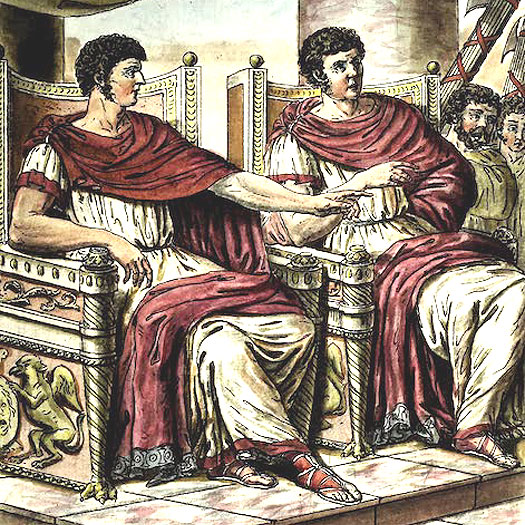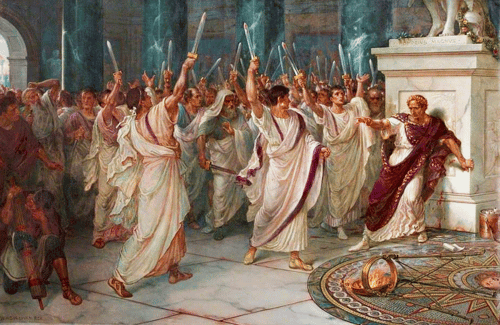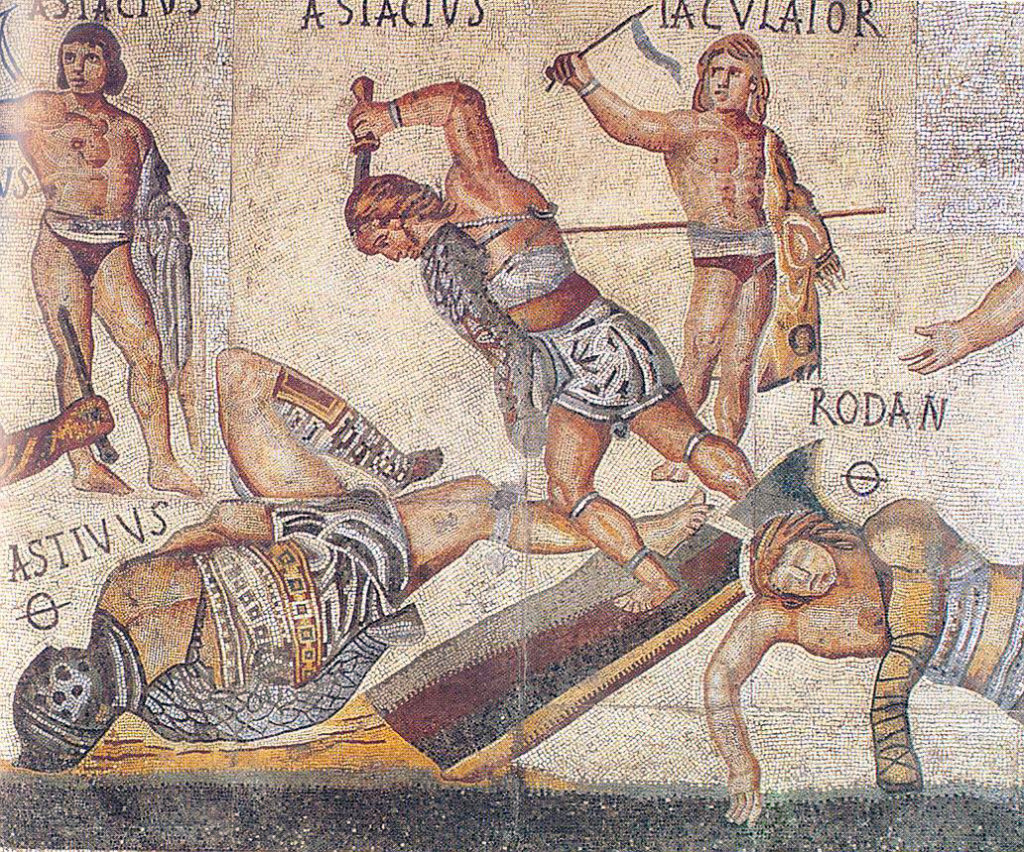Last updated on December 17th, 2022 at 09:41 pm
We know how the Roman Republic’s war machine facilitated its rise. By the third century BC, the Roman legions were the most significant fighting force in the Mediterranean.
But often less commented upon is how the political institutions of the Roman Republic allowed for the rise of the city on the Tiber to pre-eminence across much of the known world.
The Romans had one of the first political systems involving a proper balance of powers.
Rome divided its authority between the Senate, the broader Centuriate Assembly, and many elected officers and magistrates such as the tribunes and praetors.
At the top of this pyramid were the consuls, who only held power for one year and were effectively the Prime Ministers of Rome for these twelve months.
Because there were two consuls elected every year, it prevented either from becoming overly powerful.

Origins of the Office of Consul
The office of consul emerged at the end of the sixth century BC when Rome was transitioning from a monarchy, the last ruler of which was the tyrant Lucius Tarquinius Superbus, to a republic.
The idea was that many of the monarchy’s powers would transfer to these newly created magistrates. However, there would be two consuls rather than having a sole leader.
The Republic devised this system to prevent a consul from developing into a tyrant like Superbus had proved to be.
There were also precedents for this elsewhere in the Mediterranean world, a vast region of hundreds of polities with enormously varied political systems.
For instance, in Sparta in Greece, there were two royal families and two kings at any time. The dual consulship mirrored this, though consuls were elected and only served for a year.
Election of the Consuls
The Republic elected consuls through a two-stage process. This process mirrored the simultaneously oligarchic and populist nature of the Roman Republic since the Twelve Tables were introduced
First, the various candidates for office in a given year had to be nominated by the Roman Senate. Rome’s wealthiest citizens, the patrician class, made up most of the Senate.
Ownership of property and goods worth hundreds of thousands of sesterces, the Roman silver coinage, was a prerequisite for membership in the Senate.
Thus, this was an oligarchic political body and tended to nominate members of its social class as potential consuls.
When the Senate nominated candidates, they were put forward to the Centuriate Assembly. This body was a much larger elective assembly of Roman citizens with a broader franchise.
They ultimately selected two nominated candidates to become the consuls for the next twelve months.
Thus, the consuls were elected in a two-stage process that gave many Romans a say in the matter and ensured a monopoly on the office by the Roman patrician class.
Power of the Consuls
The consuls were the most powerful magistrates in the Republic. They functioned as the Senate’s leaders while in office and managed debate and legislation.
Perhaps more significantly, the consuls were also the commanders-in-chief of the Roman legions for the twelve months they served.
Finally, they oversaw some of the Roman courts while they were in office.
Unsurprisingly, some outside observers, such as the historian Polybius viewed the consuls effectively as elective kings. Such was the extent of their authority.
Moreover, their influence did not completely dry up once their term was over, for individuals could stand for election again multiple times.
By the first century BC, once the Republic had grown to rule much of the Mediterranean world, the consuls were entitled to claim one of the provinces to rule as governor for several years after their spell as consul.
Consuls in the Late Republican Generation
This latter provision of the consulship became highly significant by the mid-first century BC when people like Sulla and Marius began taking advantage of the position.
Indeed as the power of the provincial governors became ever greater, the consulship was increasingly seen as being beneficial as a stepping stone to taking charge of a province and, with it, control of several legions and the possibility of earning glory through further military conquests.
The rule of a Roman province also enriched individuals enormously through the corrupt exploitation of the region’s resources.
Julius Caesar is the most famous example of a consul benefiting enormously from these perquisites following his consulship.
Caesar served as consul in 59 BC. After that, he managed to acquire the governorship of both the provinces of Cisalpine Gaul in northern Italy and stretching into the Swiss Alps and Transalpine Gaul in what is now southern France along the Cote d’Azur.
To the north lay a sprawling mass of independent Celtic tribes across Gaul. In the seven or eight years following, Caesar used his position as governor of these two southern provinces to conquer all of central and northern Gaul.
This feat brought him huge acclaim in Rome, and enormous wealth and power, notably as the Republic sent him huge amounts of additional reinforcements to continue his conquests north as far as the English Channel and the North Sea.
He even crossed to Britain but did not consider the region worth conquering then. Caesar’s career is the pre-eminent example of how by the Late Republican period, the consulship provided a springboard to even tremendous success as a provincial governor and general.
Consuls During the Imperial Period
Of course, Caesar’s career is also paramount when considering how the centralization of too much power in the hands of a former consul ultimately led to the destruction of the Roman Republic.
In Rome, by the end of the 50s BC, the more conservative parts of the Senate and its favored political figure, Pompeius Magnus, were perturbed by Caesar’s rise.
The older branches of the patrician class wished to stop this and began supporting Pompey to try to curb Caesar’s authority.
Caesar would have none of it, and when the Senate began trying to undermine him from Rome, he brought his legions from Gaul south of the River Rubicon in northern Italy in 49 BC.
A civil war followed, at the end of which Caesar was victorious and established himself as dictator of Rome.
As part of this, he served almost continuously as one of the consuls from 48 BC down to his assassination by a reactionary group in the Senate in 44 BC.

Yet even this could not stop the descent of the Republic into authoritarian rule. In 27 BC, Caesar’s adoptive heir, Octavian, implemented a series of constitutional changes which made him princeps or ‘first citizen’ of Rome.
This was the first step in the shift from the Republic to the Empire. Yet the office of consul survived and was a staple of the imperial period.
The consuls continued to exercise a significant role as the senior magistrates of the empire. However, the office effectively became a tool of the emperor’s patronage and was gifted to his followers and favorites.
Thus, as with everything else in Roman history, the consulship was profoundly altered by the events of the first century BC.

